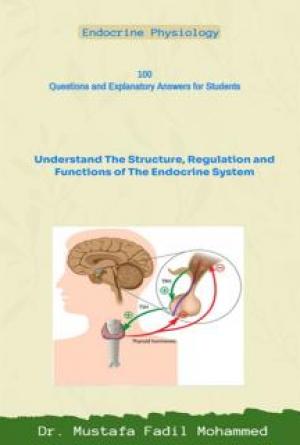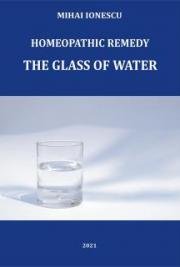Fatigue
Fatigue is a subjective feeling of tiredness and lack of energy during or after physical activity, or an aversion to physical activity.
- It is a nonspecific symptom with many possible causes and is thus difficult to define in general terms.
- It is important to distinguish fatigue from somnolence, dyspnea, and weakness; all of these symptoms are distinct from fatigue, though they may be accompanied by it.
- Among patients seen in a general office practice 20−30% complain of fatigue.
- Acute fatigue can be a presentation of acute medical problem as myocardial infarction, dehydration, acute anemia as blood loss, electrolytes imbalance, uremia of acute renal failure, and acute infections.
Chronic fatigue is defined as fatigue lasting longer than 6 months.
Chronic fatigue affects women more commonly than men.
An organic cause is found in only 2−5% of cases.
|
Causes
|
|
|
Hematologic
|
Anemia, hematologic malignancy
|
|
Endocrine
|
DM, hypothyroidism, Addison disease, hypopituitarism, Cushing
|
|
Electrolytes
|
Hypokalemia, hypercalcemia
|
|
Chronic infections
|
TB, Hepatitis B, C, HIV, infectious Mononucleosis
|
|
Neurological
|
Parkinsonism, Myopathy, Multiple sclerosis
|
|
Rheumatological
|
Rheumatoid arthritis, SLE, fibromyalgia
|
|
Malignancy
|
All malignant especially metastatic
|
|
Nutritional deficiency
|
Malnutrition , malabsorption
|
|
Psychiatric
|
Depression, stress
|
|
Systemic disease
|
CLD, CKD, heart failure, Chronic lung diseases, IHD
|
|
Medications
|
Beta blockers, digoxin,
|
|
Sleep disorders
|
Sleep apnea, insomia
|
|
Chronic fatigue syndrome
|
Diagnosis of exclusion
|
- The most common cause of fatigue is an affective disorder usually depression or anxiety disorder. Often, no cause can be identified
- “Chronic fatigue syndrome” (CFS) is diagnosed (after the exclusion of mental or organic illness or drug addiction) when the patient has suffered from clinically confirmed fatigue of undetermined origin for more than 6 months and also has certain other symptoms Sleep disorders, states of diffuse pain, and fever. About 2% of patients complaining of fatigue meet the criteria for CFS. The cause is unknown but possible etiologies are proposed including chronic infections, immune dysfunctions, muscle diseases, neurobiological dysfunctions, or psychogenic disorders. Various viral diseases (Epstein−Barr virus, cytomegalovirus)
Diagnostic Criteria for Chronic Fatigue Syndrome
|
Major criteria:
At least six months' duration; does not resolve with bed rest; reduces daily activity to less than 50 percent; other conditions have been excluded
|
|
Physical criteria:
Low-grade fever; nonexudative pharyngitis; lymphadenopathy
|
|
Minor criteria:
Sore throat; mild fever or chills; lymph node pain; generalized muscle weakness; myalgia; prolonged fatigue after exercise; new-onset headaches; migratory noninflammatory arthralgia; sleep disturbance; neuropsychological symptoms (e.g., photophobia, forgetfulness, irritability, confusion, inability to concentrate, depression, difficulty thinking); description of initial onset as acute or subacute
|
The following historical clues suggest fatigue of organic origin:
- Shorter duration, related to exertion, not present in the morning but increasingly evident as the day goes on, relieved by rest, and progressive rather than fluctuating over time.
- Other obvious organic symptoms or signs may be present. For example, the fatigue may be related to a specific muscle group (e.g., weakened arms or drooping eyelids, as in myasthenia gravis).
- In addition, fatigue that increases over several months suggests a progressively deteriorating condition such as anemia or cancer.
While Fatigue of functional origin is characterized by:
1. Fatigue of functional origin is usually of longer duration than that of organic origin.
2. It is often present and may be worse in the morning but improves gradually as the day progresses.
3. It is usually not related to exertion.
4. The cause of functional fatigue may become apparent during a thorough search of the history,
a. If the onset of symptoms correlates with emotional stresses, including major life changes, and significant loss (e.g., death of a spouse, loss of a job, or amputation of a limb).
b. Fatigue that tends to be worse in the morning, even while the patient is in bed, and improves as the day progresses suggests depression.
c. Fatigue that is constant over weeks or months, is not aggravated by effort, is associated with numerous somatic complaints, and shows no diurnal variation is probably caused by chronic anxiety.
When the diagnosis is not apparent, the following laboratory tests should be performed:
- Complete blood count with differential
- Urinalysis
- Serum glucose
- Thyroid stimulating hormone
- Erythrocyte sedimentation rate (ESR),
- Comprehensive metabolic panel,
- Chest radiograph.
- If the patient has not recently been screened for HIV
Management:
Treat the cause
Adequate sleep and nutrition
Exercise program with gradual increament (modalities like Acupuncture, Yoga, Heated aquatic therapy, and Gentle stretching are recommended.







